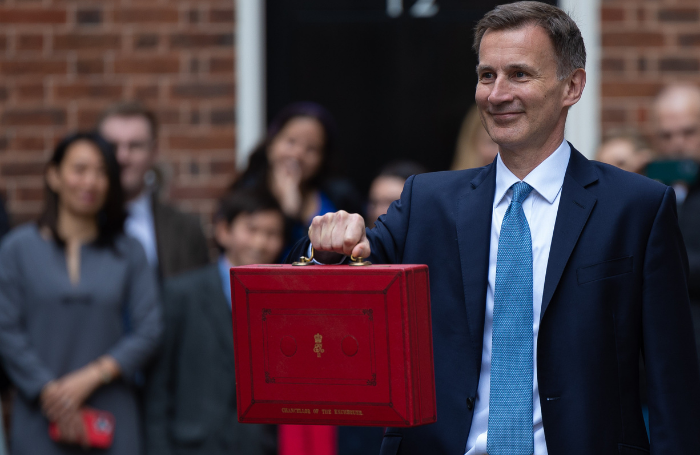As the fourth Chancellor in less than 12 months, Jeremy Hunt delivered a Spring Budget with few shock announcements, aiming to steady the market as much as possible.
Indeed, he led with the news that the Office for Budget Responsibility forecasts that the UK will not enter a recession in 2023, despite fears that this would be inevitable following an economic downturn at the end of 2022.
Throughout the Spring Budget announcement, several measures were included which will have an impact on members, explained in more detail below. You can also read RIBA President Simon Allford’s comments following one of the biggest dates in the political calendar.
Levelling up agenda
Few commentators appeared to predict the emphasis placed on levelling up, with a raft of measures announced to fund nationwide levelling up projects.
Levelling Up Partnerships, which will provide place-based regeneration in 20 areas most in need of levelling up across England over 2023 and 2024-25, will see local leaders working with government to identify and address barriers to levelling up in their areas. Information on which areas have been selected has already been released.
In addition, a third round of the Levelling Up Fund will go ahead as planned later in 2023, with a further £1bn to level up places across the UK. Alongside this, £200m of funding will be available for 16 regeneration projects in England, targeted towards “left-behind” places identified in the Levelling Up White Paper, or projects that are under £10m. £58m will also be invested in three levelling up capital projects in the north west of England.
Local leadership
Linked to the levelling up agenda, devolving power to local leaders was another priority, and one which RIBA has long been calling for. The government committed to consulting on transferring responsibilities for local economic development currently delivered by Local Enterprise Partnerships to local authorities from April 2024.
Alongside this, local transport infrastructure got a mention: the Chancellor announced a second round of the City Region Sustainable Transport Settlements, allocating £8.8 billion over the next five year funding period. This is a welcome commitment to sustainability, especially in the context of increased localism.

Energy Price Guarantee
Trailed in the press long before yesterday’s announcement was the decision to extend the Energy Price Guarantee (EPG) for households until June 2023. With cross-party support – Shadow Climate Secretary, Ed Miliband, has welcomed the measure – this is a clear attempt to provide some much-needed stability for markets and households. The EPG will be kept at £2,500 for an additional three months from April to June, saving a typical household £160, with a cost to the Treasury of approximately £3bn.
This is separate from the measure for businesses, which has already been announced. For businesses, the Energy Bills Discount Scheme (EBDS) will replace the Energy Bill Relief Scheme at the end of March. Running to March 2024, under the EBDS eligible non-domestic consumers will receive a per-unit discount on their energy bills during the 12 month period from April 2023 to March 2024, subject to a maximum discount.
Corporation tax
Also floated for weeks prior to the Spring Budget, and confirmed yesterday, was the confirmation of the rise in corporation tax from 19% to 25% from April 2023. Small businesses with profits of less than £50,000 will continue to pay 19%, while the tax rate will increase gradually for companies as their profits rise from £50,000 to £250,000. This was far less of a crowdpleaser, with many Conservative MPs publicly decrying the move as an anti-growth, anti-competition measure.
In an attempt to offset this, the government has announced a policy of full capital expensing. This will allow businesses to write off the cost of qualifying expenditure against taxable income, thus cutting businesses’ overall tax bill. This means that until April 2026, for every £1 invested in qualifying expenditure, companies can save up to 25p on their tax bill.
Investment zones
A brainchild of former Prime Minister Liz Truss, the policy of creating investment zones managed to escape the chop after a change of premiership in late 2022. Described by the Chancellor as “12 potential Canary Wharfs,” they will be situated in areas which “can offer a bold and imaginative partnership between local government and a university or research institute in a way that catalyses new innovation clusters”.
Successful applicants will then have access to £80m of funding for interventions including skills, infrastructure, tax relief and business rates retention.
What’s missing?
Despite these measures, there were a number of notable omissions. Though focus on levelling up is welcome and much needed, there was no inclusion of extra resource for local authority planning departments. RIBA has long been clear that to meaningfully level up and tackle the effects of disinvestment, planning departments must be equipped to recruit and retain qualified design expertise.
The government also missed a clear opportunity to commit to a National Retrofit Strategy, which would reduce household energy bills, create green jobs and improves health outcomes. So soon after the creation of the Department for Energy Security and Net Zero, failing to commit to such an integral measure to reach net zero is one decision where stability, the watchword of the day, may have led to an excess of caution.
Learn more about RIBA's campaigns and policies, including the latest reports and consultation responses.









